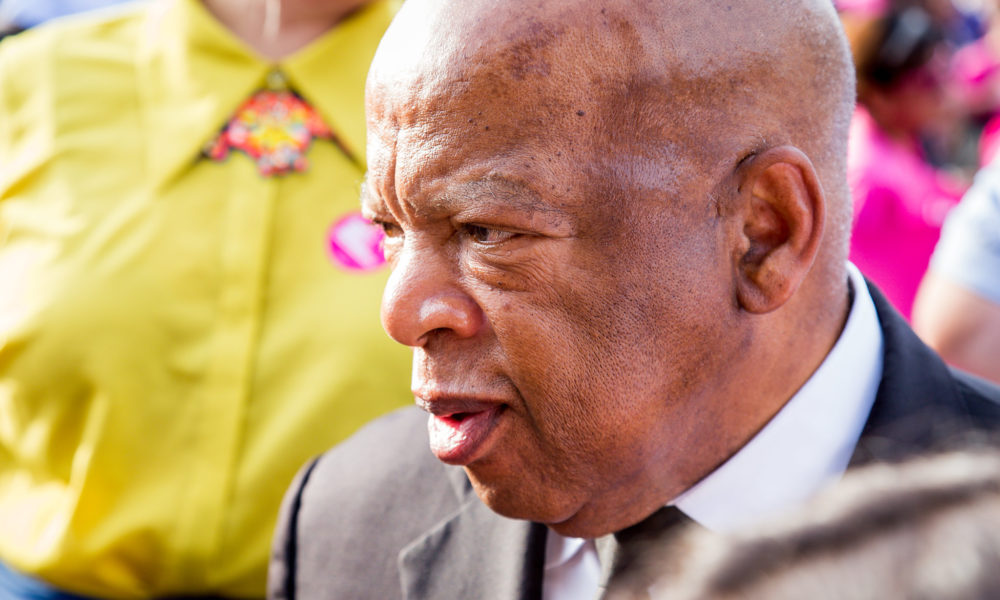On August 6th, 1965, President Lyndon Johnson signed into law the right of every citizen to participate in our democracy on an equal basis. The passage of the Voting Rights Act stands as one of our country’s highest political and moral achievements. As a document, it extended, and made enforceable, the right of political equality first promised in the Declaration of Independence, then in the 1st and later in the 14th Amendments of the Constitution.
The original Voting Rights Act of 1965 passed the House of Representatives 328 to 74 with strong bipartisan support. The House reauthorized sections of the act in 1969 with broad Republican support and Richard Nixon signed it into law. Bipartisan super-majorities in the House and Senate reauthorized the Voting Rights Act again in 1975, 1992 and 2006. After the 2006 reauthorization, which included unanimous Senate approval, Senator Mitch McConnell remarked that he was pleased that the country could “continue its progress towards becoming a society in which every person, of every background, can realize the American Dream.”
Last December, Congressman John Lewis—the late Civil Rights hero who was beaten by Alabama State Troopers on the Edmond Pettus bridge in Selma, Alabama, also known as Bloody Sunday, which led to the passage of the VRA—banged the House gavel to mark passage of HR4 or the Voting Rights Advancement Act. It marked a historic turning point for our country. However, it was not the content of HR4 that was historic, but the vote. The bill passed 228 to 187 on an almost pure partisan vote, with just a single Republican (Brian Fitzpatrick-PA1) joining Democratic members in support. The vote offered the clearest signal to date that our political parties now stand divided over the most fundamental of constitutional rights—the right to cast an equally-weighted vote. Despite passage in the House, Majority Leader Mitch McConnell refuses to even bring the bill up for debate in the Senate.
For nearly 50 years, the Voting Rights Act facilitated one of the greatest expansions of political equality and democracy in our history, as part of the Second Reconstruction. HR4 is intended to restore protections to the Voting Rights Act that prevent states and localities from implementing discriminatory voting rules after these protections were rolled back by a controversial 5-4 Supreme Court decision in 2013 in the case Shelby v Holder.
The conditions that led to the passage of the original VRA are not unfamiliar to us today. The country is currently in the throes of civil unrest, driven by decades of continuing racial injustice and the abuse of police powers. Predictably, since the Holder decision, the vestiges of electoral white supremacy have been fortified through the erection of voting barriers, ranging from proof-of-citizenship requirements, strict voter ID laws, and voter list purging, to extreme gerrymandering. While such practices are often couched in terms of partisan, rather than racist, calculation, the effects are the same.
To honor John Lewis, and all those who have taken on the fight, both physically and legally, to secure the right to vote for all, we can all commit to individual acts at the local level, including 1) voting; 2) working to help others register and learn how to vote-by-mail during the COVID-19 pandemic; and 3) working with local election officials to secure an accurate and full count of all votes cast. We can also work together to urge Senator McConnell and members of the US Senate to make good on the legacy of John Lewis and those who came before him, to make good on America’s promise of “becoming a society in which every person, of every background, can realize the American Dream.” It is time to bring the John Lewis Voting Rights Advancement Act to vote in the Senate.
Voting rights won’t fix everything wrong with our political process, but they will secure some of the necessary conditions to have a fair fight. The times call for a Third Reconstruction.

